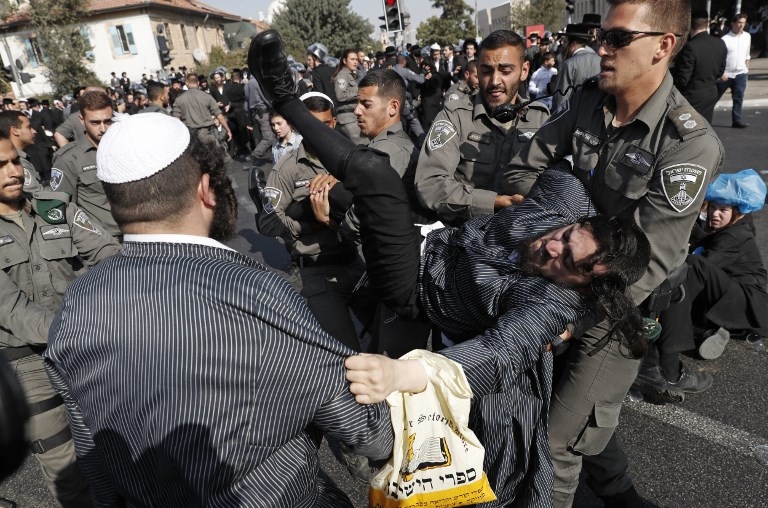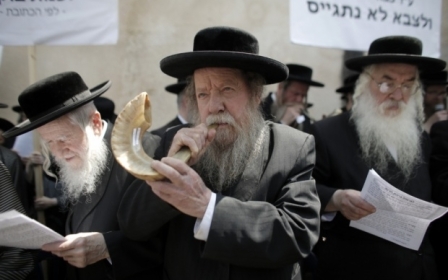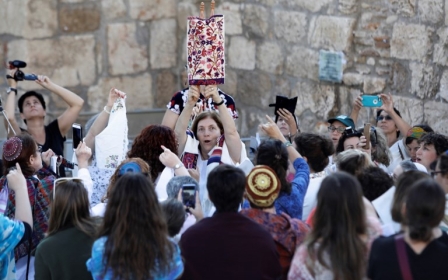Ultra-orthodox Jews protest against army Israeli draft

Several hundred ultra-orthodox Jews scuffled with police in Jerusalem on Sunday in protest against a court ruling that may require them to serve in the army like secular Israelis.
The demonstration in an ultra-orthodox neighbourhood of the city was organised by a particularly hardline group known as the Eda Haredit. The protest became violent when demonstrators blocked roads and resisted efforts to disperse them by riot police, mounted officers and a water cannon.
"Eight rioters who used violence against police were arrested," a police statement said in Hebrew.
Some of the protesters lay down in front of traffic, shouting insults at the police including calling male security personnel “Nazis” and female personnel “shiksas,” Yiddish for a non-Jewish woman and, according to the police, also threw stones at police personnel, the Jerusalem Post said.
Police and Border Police reacted strongly and in some cases violently against the protesters, with one video showing a protestor forcefully shoved over by a border policeman seemingly without cause, the Post reported.
Police personnel also dealt forcefully with protesters lying arm in arm in the middle of the junctions, hauling them away, roughing them up and even beating them in order to successfully remove them, the Post said.
Rabbis gave speeches in Yiddish in the Mea Shearim neighbourhood, while a banner read: "We're Jews and therefore will not enlist in the Zionist army."
Last week's Israeli Supreme Court decision strikes down a law exempting ultra-orthodox men engaged in religious study from military service, saying it undermines equality.
The decision raises the possibility that they could be forced into service, a highly contentious proposition with political implications.
However, the court suspended its decision for one year to allow for preparations for the new arrangement - which also provides the government with the opportunity to pass a new law.
Ultra-orthodox political parties and their allies in government are likely to draft new legislation that may seek to override the court ruling and keep the exemption in place.
The ultra-orthodox parties form a key part of Prime Minister Benjamin Netanyahu's governing coalition, and have often acted as kingmakers in Israeli politics.
The issue is part of a decades-old debate over whether young ultra-orthodox men studying at seminaries should undergo compulsory military service like the rest of Israel's Jewish population.
After reaching the age of 18, men must serve two years and eight months, and women must serve for two years.
The ultra-orthodox oppose serving for a variety of reasons, with the most extreme believing a Jewish state is not allowed before the coming of the Messiah.
Others argue that seminary study is just as important to Israel as military service or that ultra-orthodox soldiers would be confronted with salty language and other irreligious behaviour.
New MEE newsletter: Jerusalem Dispatch
Sign up to get the latest insights and analysis on Israel-Palestine, alongside Turkey Unpacked and other MEE newsletters
Middle East Eye delivers independent and unrivalled coverage and analysis of the Middle East, North Africa and beyond. To learn more about republishing this content and the associated fees, please fill out this form. More about MEE can be found here.




